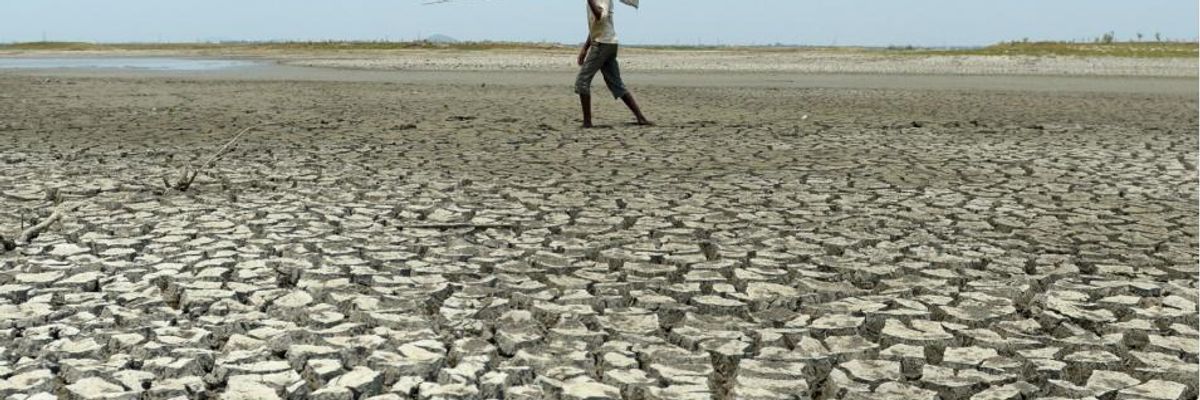The United Nations marked this year's World Water Day Monday by warning of worsening inequalities in access to clean water across the globe and calling for recognition of the "true value" of the vital resource in order to sustainably manage it.
"Chronic under-investment in water and sanitation disadvantages and harms vast numbers of people," United Nations Secretary-General Antonio Guterres said Monday. "This is unacceptable."
Increased global stress on water resources and infrastructure, exacerbated by the climate crisis, threatens to increase the number of people who suffer from the inadequate delivery of safe drinking water and sanitary services. According to a U.N. fact sheet:
- A third of the world's biggest groundwater systems are already in distress;
- Over two billion people live in countries experiencing high water stress;
- About four billion people, representing nearly two-thirds of the world population, experience severe water scarcity during at least one month of the year;
- 700 million people worldwide could be displaced by intense water scarcity by 2030;
- It is estimated that by 2040, one in four of the world's children under 18--some 600 million in all--will be living in areas of extremely high water stress; and
- Nearly half the global population are already living in potential water-scarce areas at least one month per year and this could increase to some 4.8-5.7 billion in 2050.
"The devastating effects of the Covid-19 pandemic remind us of the importance of having access to water, sanitation, and hygiene facilities, and highlight that far too many people are still without them," Gilbert F. Houngbo, chair of U.N.-Water and president of the International Fund for Agricultural Development, said in a statement released Monday.
"Many of our problems arise because we do not value water highly enough; all too often water is not valued at all," he added.
Published Monday, the U.N.'s new World Water Development Report, Valuing Water, attributes the mistreatment and maldistribution of water to a society-wide failure to adequately acknowledge and measure the social, environmental, and cultural values of the unique resource.
According to U.N.-Water: "Despite the difficulty of attributing an objective and indisputable value to a resource which is fundamental to life, it seems necessary to examine water's various dimensions in order to understand the various aspects of its 'value.' We all too often think of water exclusively in terms of its cost price, without realizing its tremendous value, which is impossible to price."
"The value of water is certainly incalculable and limitless, since life cannot exist without it and it has no replacement," the agency continued. "Although price and cost are potentially quantifiable, the concept of 'value' is much wider and includes social and cultural dimensions."
"Water," the agency added, "is not like other raw materials which can be treated as commodities and openly traded through stock markets."
Wall Street, however, began in December to allow speculators to treat water as a commodity whose potential scarcity can be bet on or against--a reflection of what U.N.-Water called the tendency to "reduce the value of water to its economic aspect."
"While monetary valuation has the advantage of convenience and easy legibility in agriculture and industry, it presents the disadvantage of underestimating, even excluding, other aspects which are more difficult to monetize," noted U.N.-Water. "How do we quantify the meaning of the 443 million school days missed annually due to water-related diseases?"
"Only by recognizing the multiple values of water we can ensure equity in water resources management," the agency tweeted.

